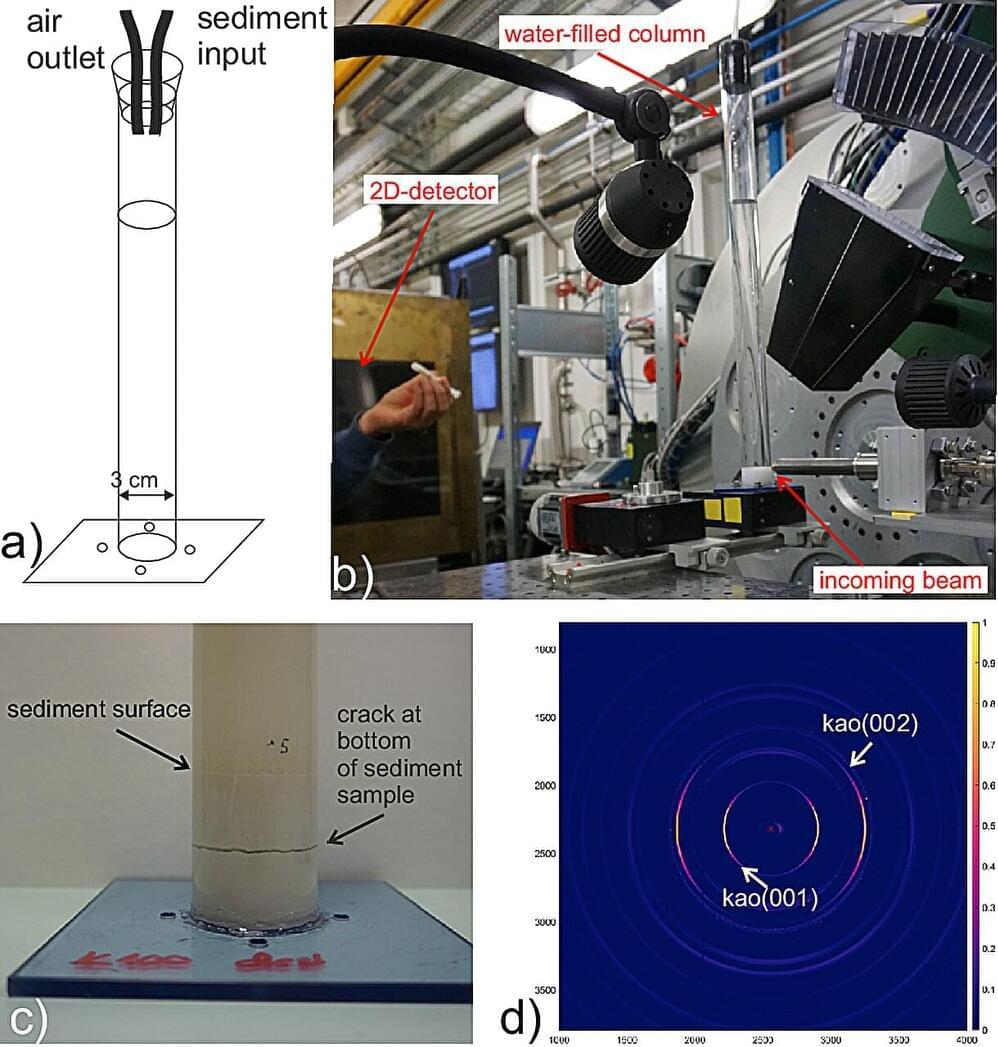Clay minerals are a major constituent of the Earth’s surface and are mainly found in the sediments of lakes, rivers and oceans. The properties of clay and claystone depend on how the tiny sediment particles are orientated. Using the European Synchrotron particle accelerator in Grenoble (France), a research team from the Martin Luther University Halle-Wittenberg (MLU) has succeeded for the first time in observing in detail how some of the processes work.
The study was published in the journal Communications Earth & Environment and provides researchers with insights into the structure and properties of sediments.
The formation of clay-rich sediments is difficult to study. “Sedimentation occurs, for example, on the hard-to-reach seafloor over a very long period of time. In addition, clay particles are only a few micrometers or less in size. As a result, conventional microscopy methods are not suitable for the observation of clay particles during sedimentation,” explains Dr. Rebecca Kühn, a geoscientist at MLU, lead researcher of the study.
